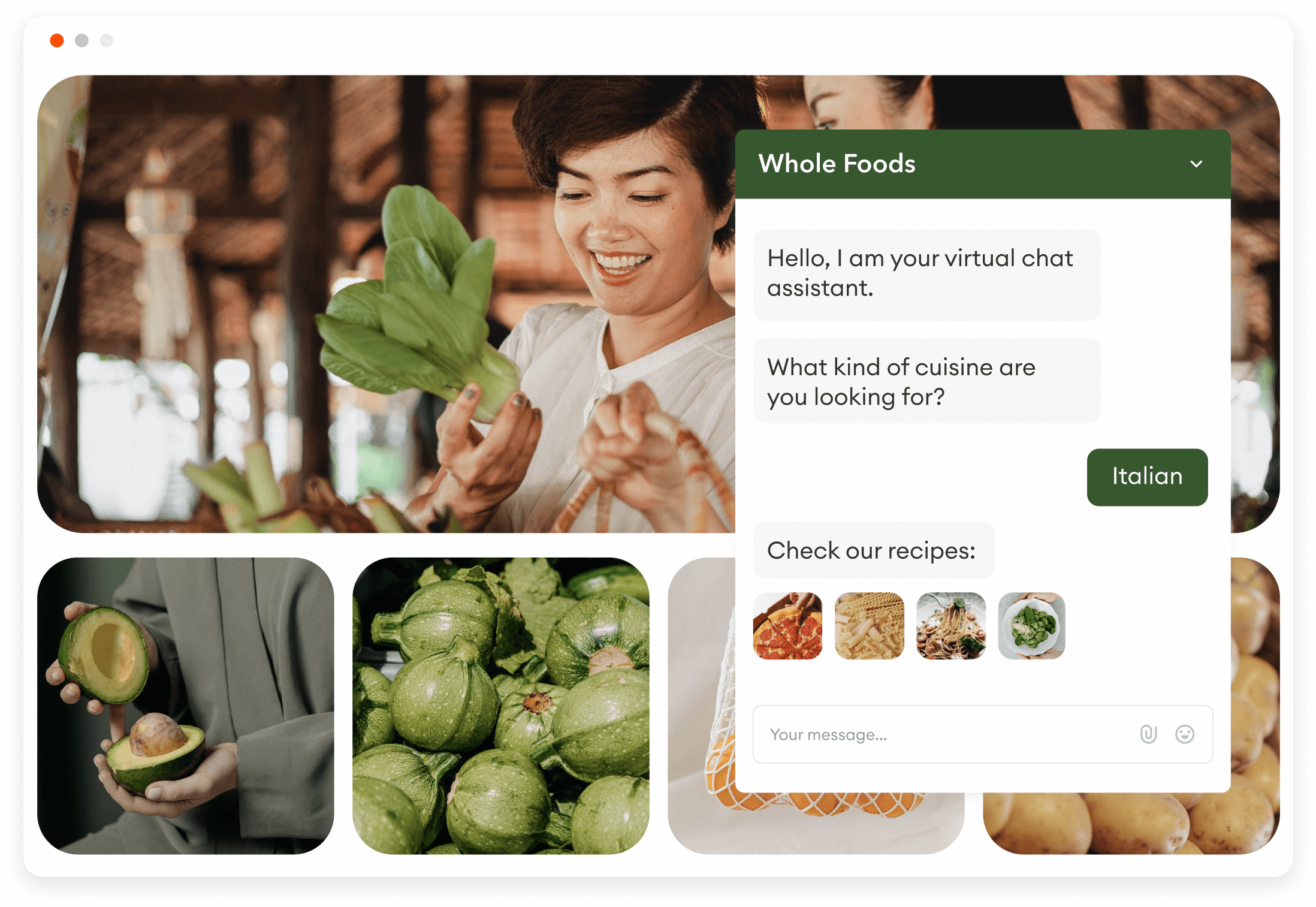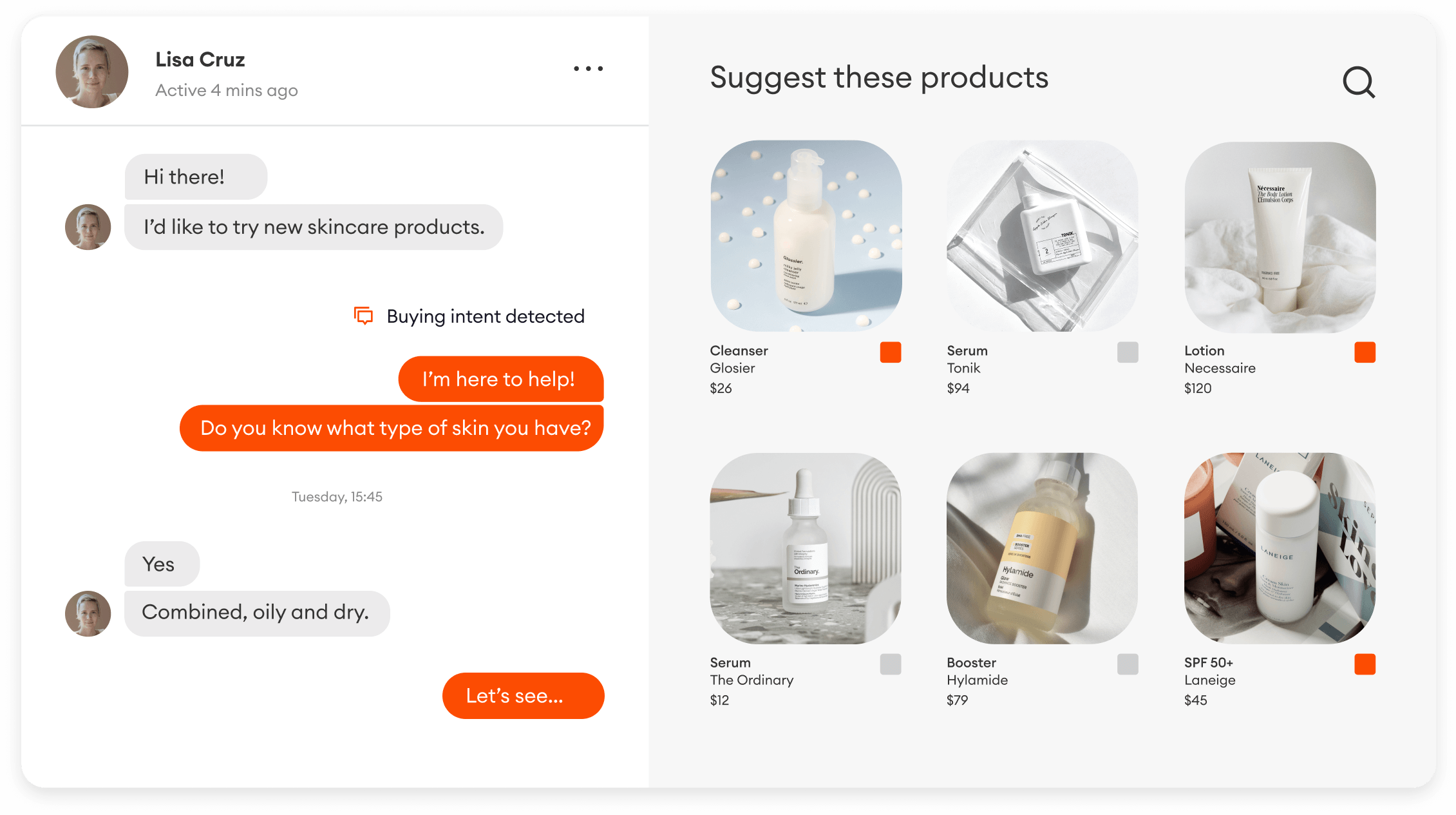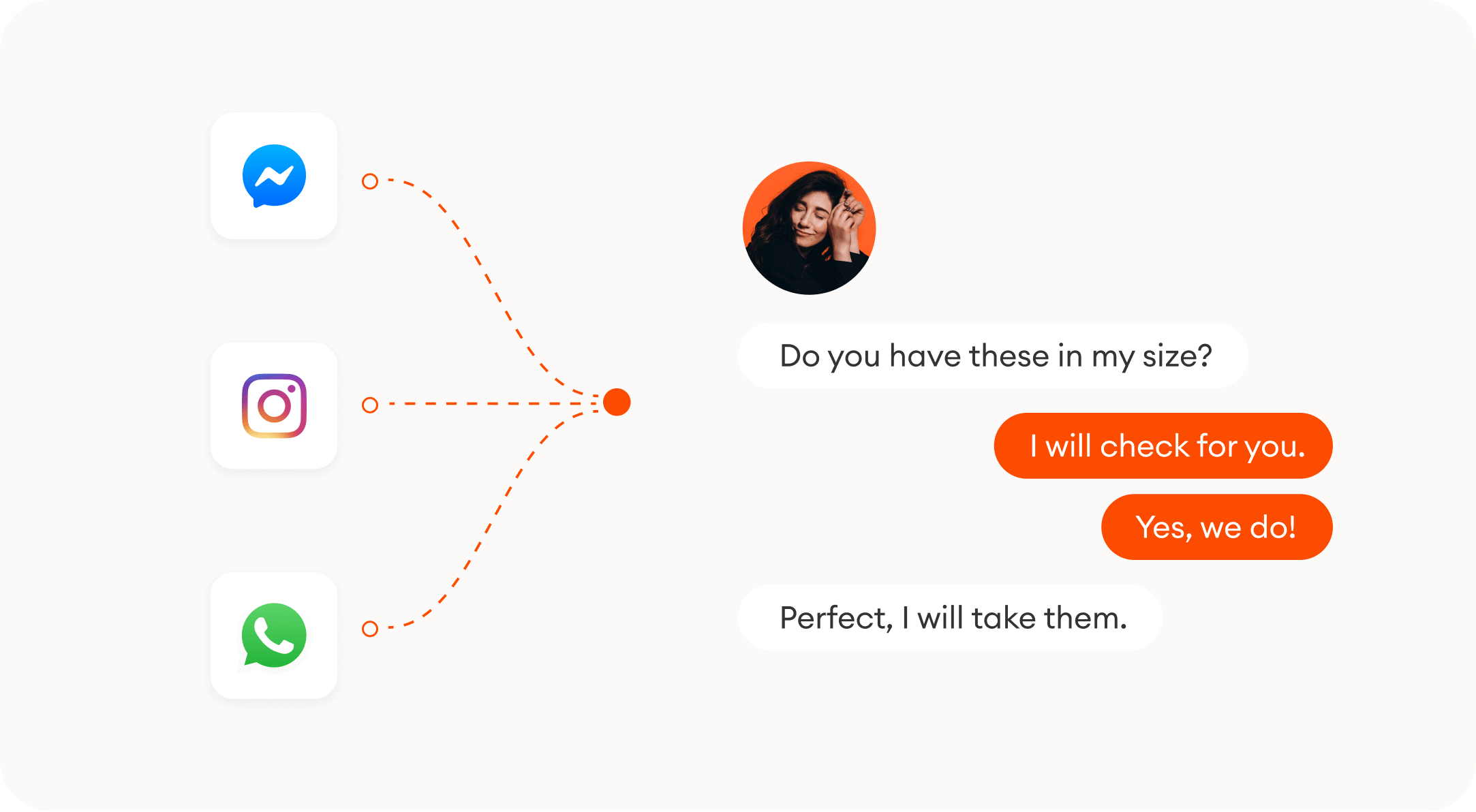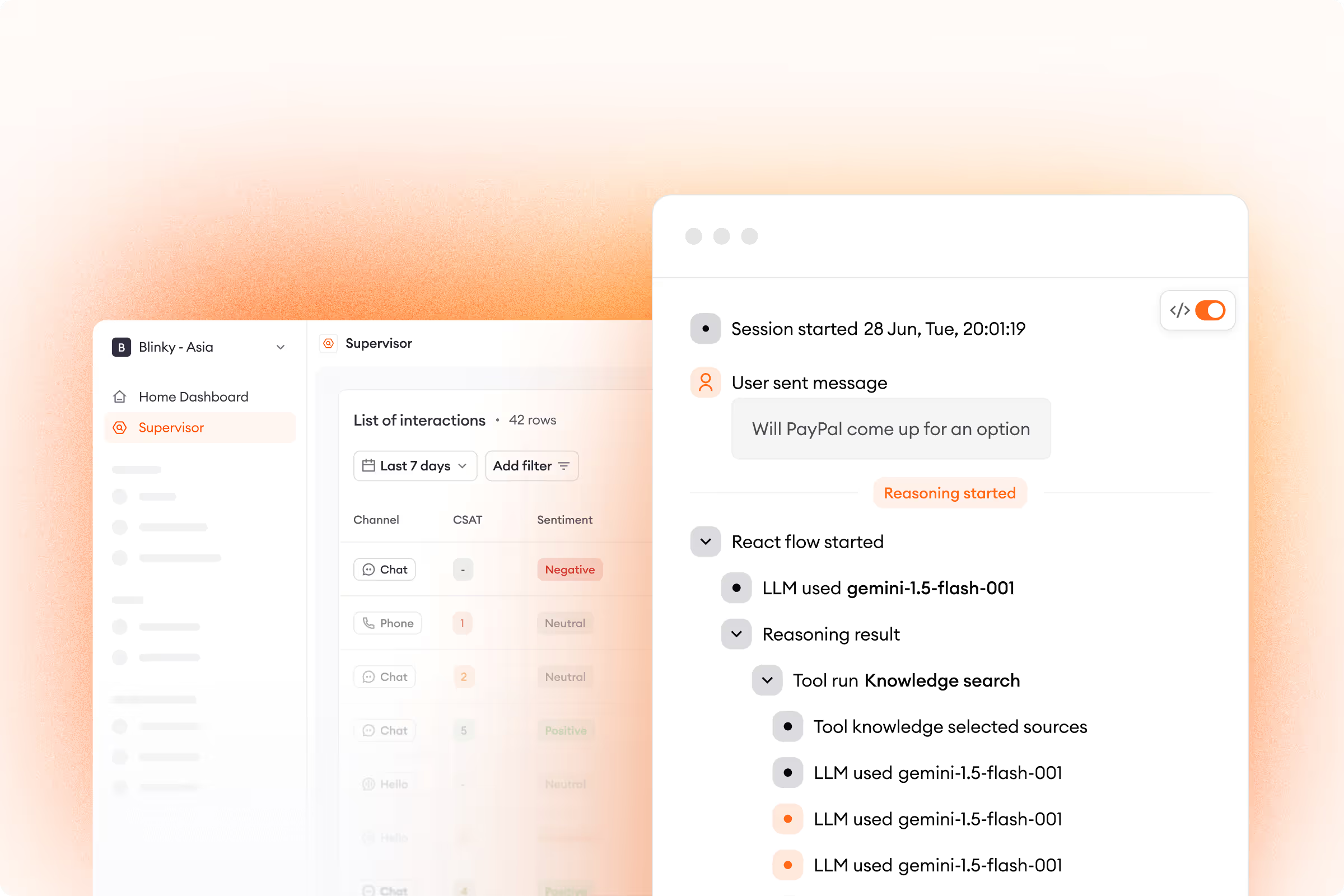Delivering top-notch customer service can be challenging for companies big and small.
There are a number of paths to doing this successfully, but more companies today are choosing customer support automation. And it’s no wonder why. According to McKinsey, automation can save businesses up to 40% on customer service expenses.
Chatbots are one of the most popular choices for companies looking to automate.
Many businesses complain about them, and the truth is—chatbots aren’t for everyone. A chatbot paired with the wrong business can lead to all kinds of headaches.
For the right brand, though, a high-quality AI chatbot can free up agents, delight customers, and boost revenues.
Should you use a chatbot? Is customer support automation right for you?
The following five signs are key indicators that you’re ready for automation.
1. You’re experiencing fast-paced growth.

Many companies turn to chatbots out of necessity—they’re growing too quickly for their customer service team to keep up.
Imagine this scenario:
Your business sees a sudden uptick in growth. Your agents receive more customer queries, and their workload goes up. In response, you hire more agents, which allows for more growth. More tickets come in, and more agents are needed.
Often, hiring more agents whenever you see a jump in traffic isn’t sustainable.
Automation is.
Brands frequently turn to chatbots because they offer scalable customer service. When you have more customers, you don’t get overloaded. And there’s no need to let any agents go if there’s ever a downturn in tickets.
Chatbots save you time—hands down. Customers see this too. Salesforce found that 69% of customers prefer to use chatbots because they’re able to rapidly answer questions.
For high-growth organizations that need quick responses, automation could be a lifesaver.
Find out how automation with Zowie can support rapid online growth with our case study on UMZU, a health supplement manufacturer.
2. You need multilingual support across different time zones.

Speaking of growth, automation simplifies international expansion by immediately providing customer service in whatever language you need.
Without automation, any business that serves customers in a foreign country needs agents that speak the language. On top of that, you’ll need agents who are active during business hours in the local time zone.
For example, what should an American company do if it wants to enter European markets?
Hire US-based agents to work early-morning hours, or have agents in Europe who’ll be separated from the rest of the team.
Either solution could work, but they can both be complicated to implement.
Chatbots present businesses with a third choice—use a virtual assistant to serve customers whenever, wherever. Today’s smartest chatbots operate in several languages, eliminating logistics and language barriers.
Better still, automated customer support is available 24/7. Any brand looking to help customers at all times of the day has a lot to gain from chatbots.
3. You want to deliver personalized experiences.

The outdated way of thinking says automation hurts personalization. Chatbots can’t possibly respond to customers with emotions and empathy, right?
Wrong. Today’s advanced chatbots have learned how to form powerful bonds with customers.
One standout example is Whole Foods’ chatbot. It asks visitors which kind of cuisine they’re looking for and presents them with links to specific recipes. It even understands emojis.
In a 2017 survey, 34% of ecommerce respondents believed automation could produce a more personalized customer experience, By 2019, that share had already rocketed to 64%.
Why is personalization so important? A 2021 study found that personalized chatbot interactions can increase not only customer engagement, but sales as well.
Over 70% of businesses say customer service automation has strengthened customer relationships, so brands looking to offer those personalized experiences can certainly find chatbots useful.
To see some leading direct-to-consumer brands that offer phenomenal customer experience, read Zowie’s What is D2C? Your Guide for 2022.
4. Your target demographic welcomes automation.

One reason chatbots fail? Companies are using them to serve the wrong customers.
Some social groups are more accepting of automation than others, plain and simple. If you want an effective chatbot, you have to ensure your customer base wants to interact with one.
In general, younger shoppers are more likely to embrace automation. Customers aged 18 to 34 are twice as likely to talk to a chatbot when shopping online than older age groups.
In addition, women speak to chatbots more often than men.
This is exactly why fashion and cosmetics brands like Victoria’s Secret, Estée Lauder, and Sephora, which target younger women, all feature virtual assistants on their home pages.
If your audience is older men or customer who’d rather call customer service over the phone, then a chatbot might be a poor match.
On the other hand, creating a chatbot for a young, tech-savvy crowd that feels comfortable shopping online and on mobile devices is likely worth it.
5. You’re active on automation-friendly channels.

Automation is worth it when you’re getting lots of traffic on your website and social media pages. These are chat-friendly channels where automation is fairly straightforward.
If you’re getting high customer demand on your Facebook page, setting up a chatbot on Messenger to answer FAQs could assist a great deal of customers.
That’s probably why there are already at least 300,000 chatbots on Facebook Messenger.
However, if your customers aren’t visiting your online channels and prefer calling you via telephone, a chatbot might not be your priority.
That being said, a survey from Helpshift found that a record 83% of customers are open to making chat messaging their primary way of contacting customer support.
This shows that other forms of communication are gradually growing out of favor, meaning more and more businesses can now benefit from adding a chatbot.
Are chatbots useful for you?
If the above characteristics describe your company, then there’s a good chance customer service automation is worth it.
Chatbots don’t always work.
But if you’re a high-growth brand looking to deliver exceptional experiences to the right group of customers, automation might be exactly what your customer service team needs.
Want to see how automation with Zowie can turn your customer support into customer success?
Book a call
.avif)

.avif)
.svg)







